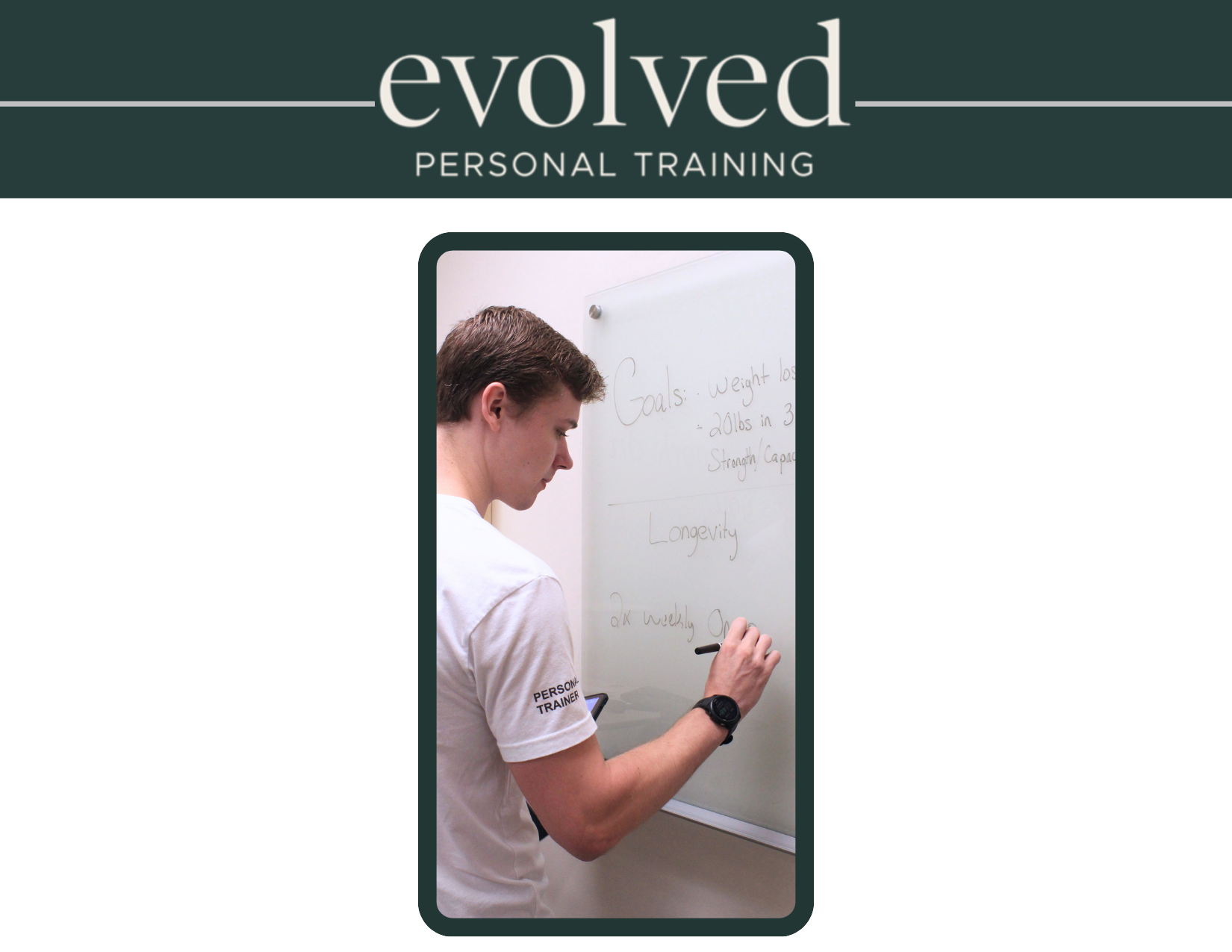
Slumber Slim-Down
The Ultimate Guide to Leveraging Sleep for Fat Loss Success
What to Expect From This Article
Let's be real - everyone knows sleep is important. Sleep and weight loss are inextricably intertwined.
But understanding exactly how insufficient sleep affects your fat loss journey and what to do about it isn't always so clear.
This article will take you through everything you need to know about sleep and weight loss, with a twist: we're not just going to tell you to "get more sleep" and call it a day.
Here's what we'll cover:
The science behind why adequate sleep is crucial for fat loss (hint: it's about way more than just feeling rested)
How to set up your lifestyle for optimal sleep when circumstances allow
Practical strategies for those inevitable times when good sleep just isn't happening
Evidence-based ways to mitigate the negative effects of sleep deprivation on your fat loss goals
How to combine sleep optimization with exercise for maximum results
Why this approach? Because while we absolutely want to help you optimize your sleep for fat loss and achieveing a healthy body weight, we also live in the real world. Late nights happen. Work deadlines pop up. Kids don't always sleep through the night. Travel disrupts our routines. And sometimes, despite our best efforts, sleep just doesn't come easily. Inadequate sleep is just a reality in certain seasons of life.
Rather than making you feel guilty about imperfect sleep (which, let's face it, just adds stress and makes sleep even harder), we'll give you the tools to:
Maximize your sleep quality and sleep duration when you can
Minimize the damage of sleep deprivation when you can't
Keep making progress toward your fat loss and weight loss goals regardless of your sleep situation
Think of this as your complete guide to both the ideal and the real - because your fat loss journey shouldn't have to wait for perfect sleep conditions.
The Surprising Truth About Sleep and Fat Loss
Have you ever wished you could lose weight while you sleep?
Well, it turns out you can - or at least, your sleep quality can make or break your fat loss efforts.
At Evolved Personal Training, we've seen firsthand how sleep affects our clients' results, and the science backs this up in a big way.
Dr. Mike Israetel, a renowned expert in exercise science and nutrition, puts it bluntly: "Sleep is non-negotiable if health and body composition and performance are on your radar."
But why such a strong stance? Let's dive into the science on sleep loss and weight management.
The Sleep-Fat Loss Connection: Four Critical Pathways
1. Hormonal Balance
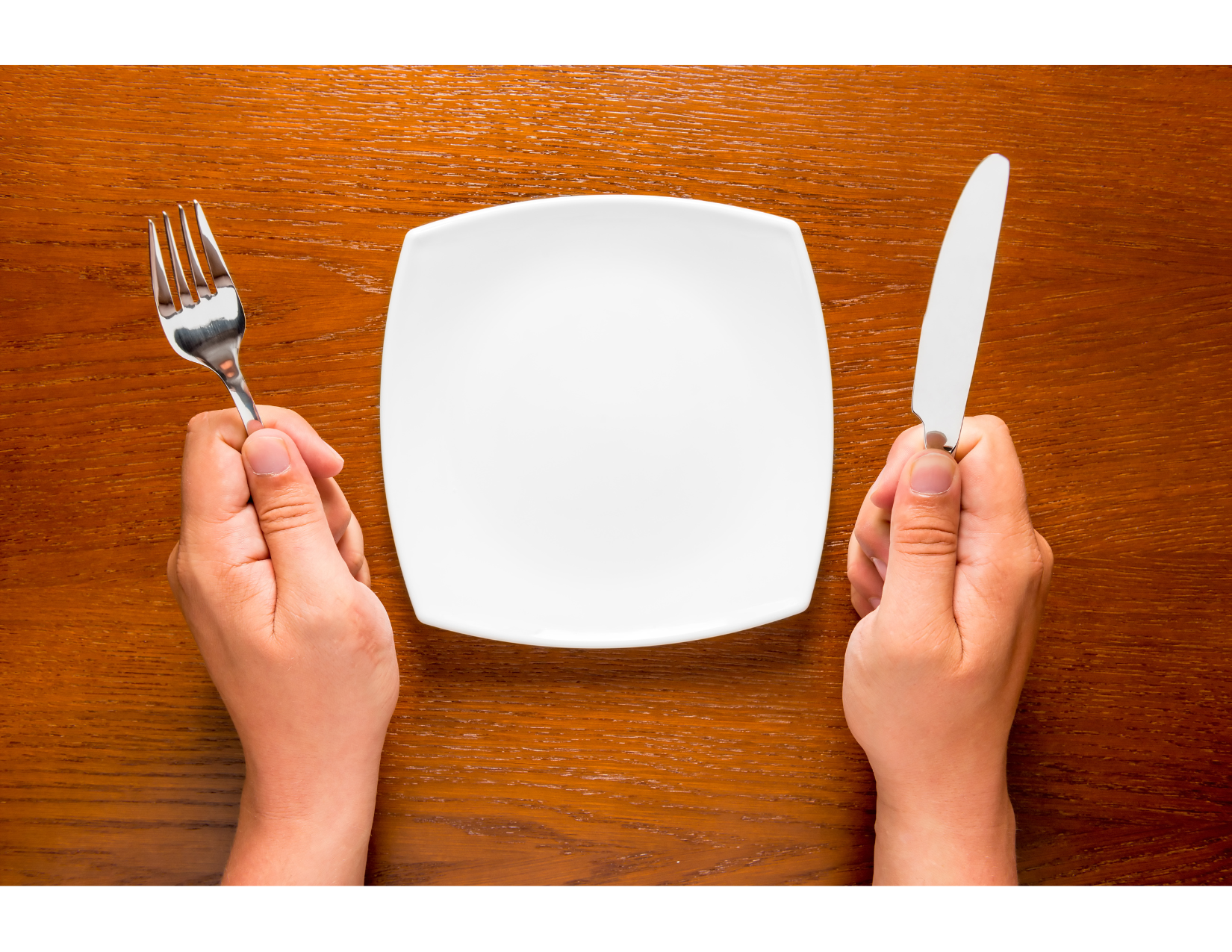
Your body's hunger and satiety signals depend heavily on two hormones: leptin and ghrelin. Think of leptin as your "I'm satisfied" hormone and ghrelin as your "I'm hungry" hormone. Dr. Rhonda Patrick's research shows that just two days of poor sleep can throw these hormones into chaos:
Leptin levels drop, making you feel less satisfied after eating
Ghrelin levels spike, increasing hunger
Cravings for processed foods and sugary snacks increase by up to 45%
Overall calorie consumption typically jumps by 24%
2. Insulin Sensitivity
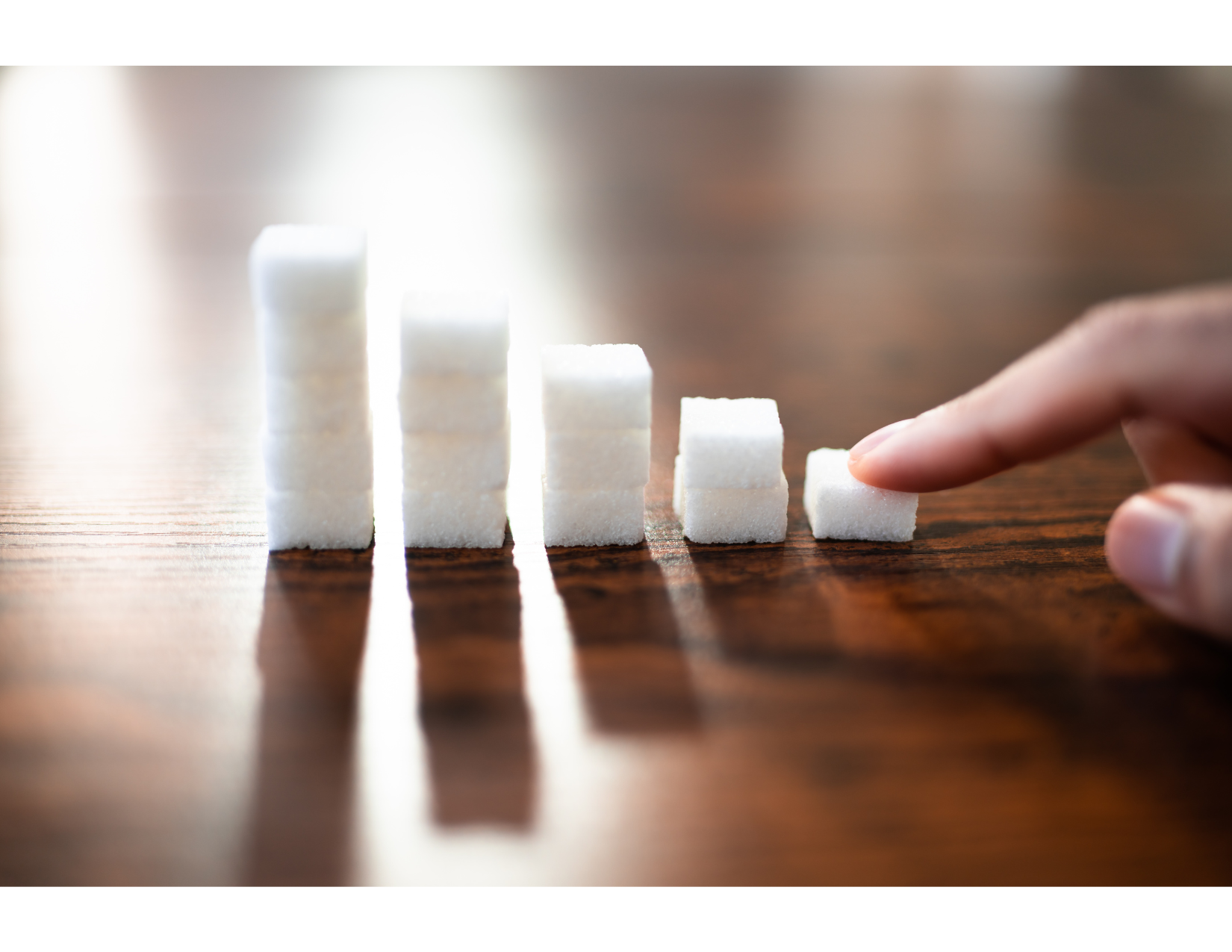
Here's where things get interesting.
Sleep doesn't just affect how hungry you feel - it fundamentally changes how your body processes food. Poor sleep can lead to insulin resistance, meaning your body struggles to properly use glucose for energy. Instead of powering your cells, that glucose often gets converted to fat for storage, which can lead to weight gain.
Even mild sleep restriction (sleeping 1-3 hours less than normal) for just three nights can:
Significantly decrease insulin sensitivity
Lead to higher blood sugar levels
Make fat loss more challenging
Mirror early stages of type 2 diabetes
3. Metabolic Rate
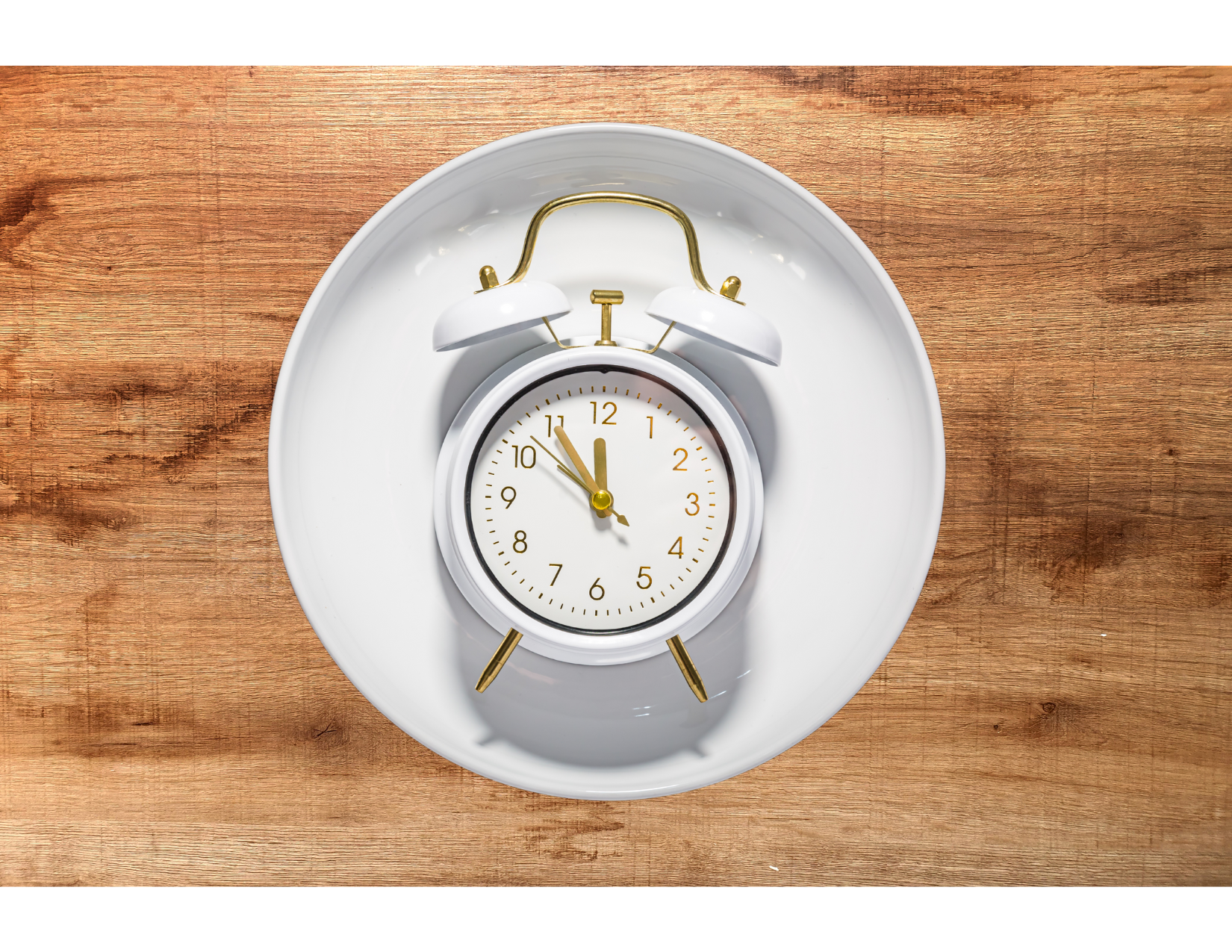
Your metabolic rate - the number of calories you burn at rest - takes a hit when you're sleep-deprived.
Your body essentially goes into energy conservation mode, making it harder to maintain the calorie deficit needed for fat loss.
It's like trying to drive with the parking brake on - you can do it, but it's much less efficient.
4. Exercise Performance and Recovery
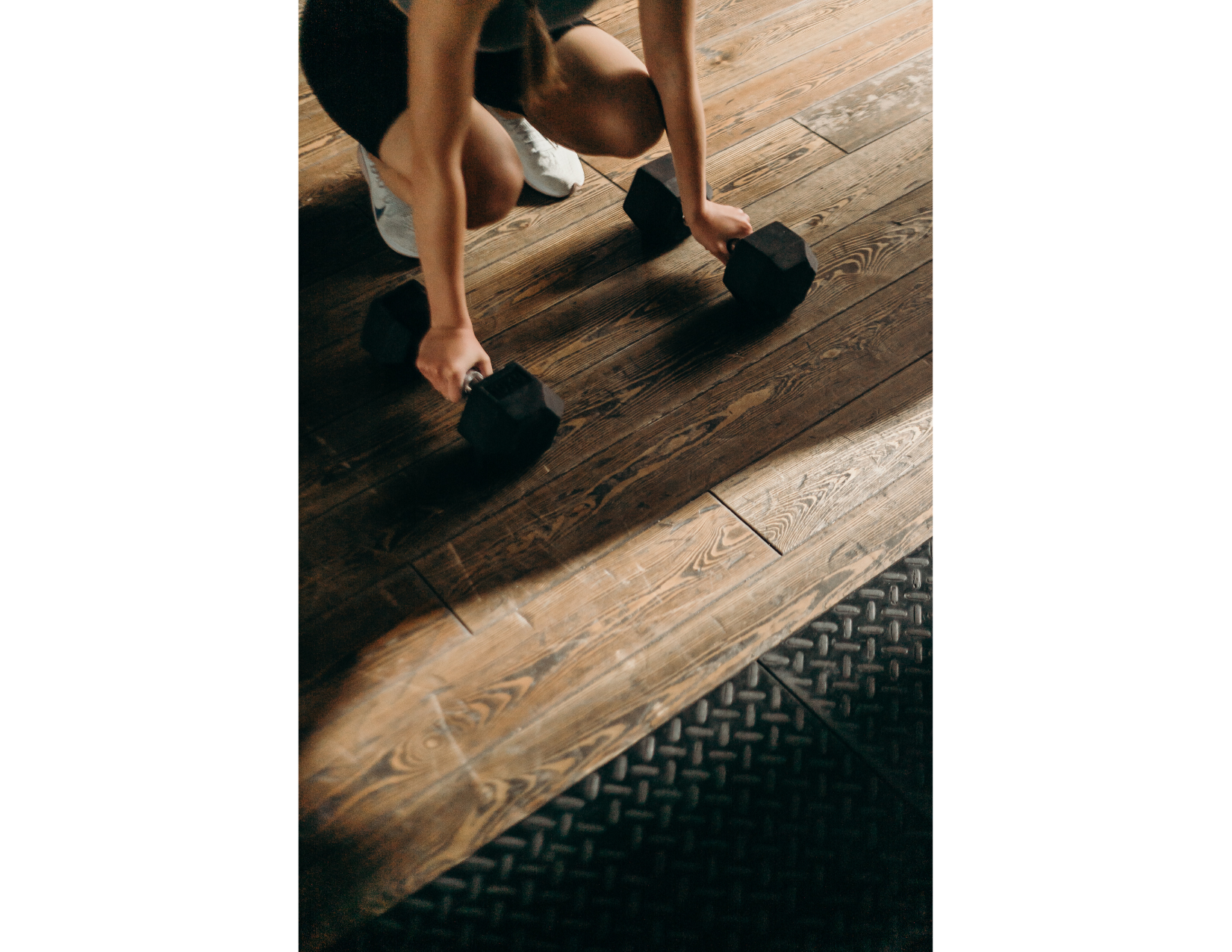
Quality sleep is your secret weapon for better workouts and faster recovery. When you're well-rested:
You have more energy for intense workouts
Your motivation to exercise increases
Your body repairs and builds muscle more effectively
You're less likely to skip workouts due to fatigue
The Optimal Sleep Recipe: Setting Yourself Up for Success
The sweet spot for sleep duration is 7-9 hours per night.
But it's not just about the hours - quality matters too.
Here's your blueprint for optimal sleep hygiene:
Environment Optimization
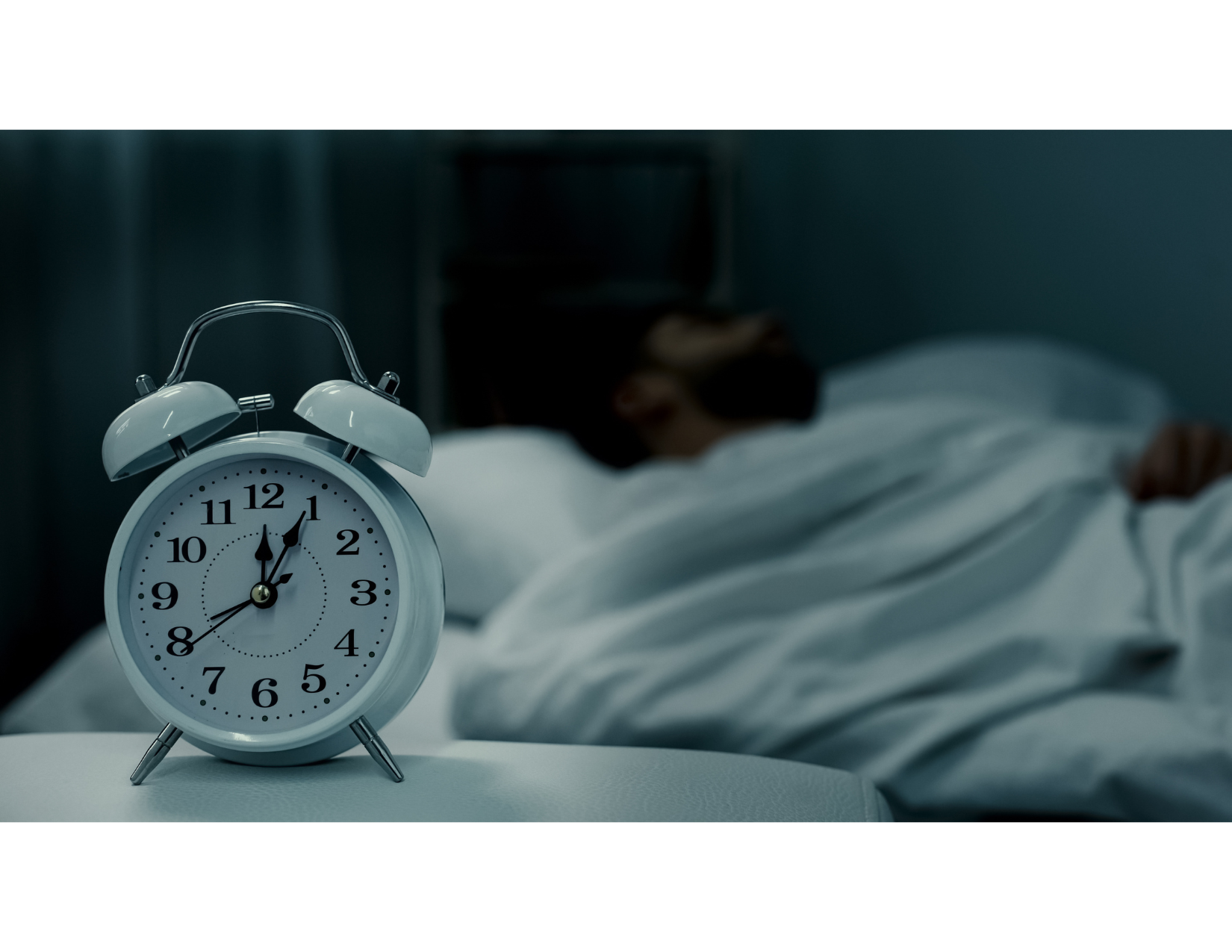
Keep your bedroom cool (around 65-68°F/18-20°C)
Make it as dark as possible (blackout curtains are worth the investment)
Use white noise or rain sounds to mask disruptions
Invest in a comfortable mattress and pillows
Timing Strategies
Stick to consistent sleep and wake times
Stop eating 3 hours before bedtime
Get morning sunlight within an hour of waking
Limit caffeine after 2 PM
Technology Management
Use blue light blocking glasses after sunset
Keep screens out of the bedroom
Set devices to night mode in the evening
Create a digital sunset routine (gradually reducing screen time)
Real-World Sleep Solutions: Making the Ideal Work for Your Life
We know - looking at this list might seem overwhelming, especially if your current sleep routine is far from ideal.
Your work schedule might make consistent sleep times challenging, or family responsibilities might mean screens sometimes come into the bedroom. Maybe a 3-hour gap between dinner and bedtime seems impossible with your evening commitments.
Here's the thing to understand if you want to lose weight and sleep deprivation is standing in the way: these recommendations aren't an all-or-nothing proposition.
Think of them as a target to aim for, not a pass/fail test. Every step you take toward these ideal conditions will help improve your sleep quality.
Can't do all three hours between dinner and bed? Even one hour helps. Can't completely ban screens? Using blue light blocking glasses is still better than nothing.
Sleep optimization is like a dimmer switch, not an on/off button. The closer you can get to ideal conditions, the better your results will be. But some sleep optimization is always better than none.
Start with the changes that seem most manageable for your lifestyle, and gradually work toward incorporating more as you can. Remember - progress over perfection is what we're after. Even small improvements in sleep quality can lead to meaningful changes in your fat loss results.
When Sleep Goes Sideways: Real-World Strategies
Now for the real talk - what about those times when perfect sleep just isn't happening? Here's your action plan:
Immediate Damage Control
Focus on protein: High-protein foods help stabilize blood sugar and reduce cravings
Get outside: Morning sunlight helps reset your circadian rhythm
Stay hydrated: Often we mistake thirst for hunger
Plan your meals: Don't leave food choices to chance when you're tired
Strategic Exercise Timing
Dr. Patrick's research shows that high-intensity interval training (HIIT) can help mitigate the negative effects of poor sleep on metabolism.
Now, we know what you're thinking - exercise is probably the last thing on your mind when you're exhausted. But here's the encouraging part: even brief, strategic movement can help get your metabolism back on track after a poor night's sleep.
If you're feeling up to it (and only you can judge this), these quick exercise frameworks can help counteract some of the metabolic disruption caused by poor sleep.
We've broken these down into two categories - super gentle options for those really rough days, and slightly more challenging ones for when you're tired but still have some energy to spare.
Remember, something is always better than nothing, but always listen to your body.
Here are some quick, effective options:
The "I'm Really Tired" HIIT Menu:
Tabata Light: 20 seconds moderate effort, 10 seconds rest × 8 rounds (4 minutes total)
Exercise Snacks: 10 bodyweight squats every hour - aim for at least 4 hours on really exhausted days, and up to 8-10 hours when less fatigued
Mini-Circuits: 3 minutes total (1 minute each of marching in place, squats, and arm circles)
The "I Can Handle More" HIIT Menu:
Classic Tabata: 20 seconds all-out effort, 10 seconds rest x 8 rounds
The Norwegian 4x4: 4 minutes hard effort, 3 minutes easy recovery x 4 rounds
The Simple Sprint: 30 seconds hard effort, 4 minutes recovery x 4-6 rounds
Nutrition Strategies for Poor Sleep Days
Let's talk food - because when you're tired, your body is practically screaming for quick energy in the form of sugars and simple carbs.
If you've ever found yourself gravitating toward the office donut box after a rough night's sleep, you know exactly what we mean.
This isn't just lack of willpower; it's your body's natural response to sleep deprivation or poor sleep quality.
Remember those hormones we talked about earlier - leptin and ghrelin? Well, they're working overtime now, making you hungrier than usual while simultaneously making it harder to feel satisfied. Add to that the insulin resistance that comes with poor sleep, and you've got a perfect storm for making less-than-optimal food choices.
But here's the good news: with some strategic planning, you can work with your biology instead of against it. These nutrition strategies are designed to help stabilize your blood sugar, manage those intense cravings, and keep your energy levels as steady as possible throughout the day:
Front-load protein at breakfast
Keep healthy snacks readily available
Avoid high-sugar foods that can crash your energy
Consider breaking your meals into smaller, more frequent portions
The Long Game: Building Resilience

While we've covered strategies for damage control after poor sleep, let's talk about something even more important - building a more resilient sleep system that can better handle life's inevitable disruptions. Think of it like strengthening your immune system rather than just treating cold symptoms when they appear.
Sleep resilience isn't about achieving perfect sleep every night (that's not realistic for most of us). Instead, it's about developing habits and systems that help you:
Bounce back faster from disrupted sleep
Fall asleep more easily when you do have the opportunity
Maintain more consistent sleep patterns overall
Handle occasional sleep disruptions without completely derailing your progress
This might seem like a big investment of time and energy, but remember - you're playing the long game here. Every small habit you build now compounds over time, creating a more robust foundation for both your sleep and weight loss goals.
While managing poor sleep in the moment is important, building long-term sleep resilience is even better. Here's how:
Stress Management Toolkit
Regular meditation or deep breathing practice
Time in nature
Gentle movement like walking or yoga
Journaling before bed
Lifestyle Design
Create buffer zones between work and sleep
Set boundaries around work hours
Develop a relaxing bedtime routine
Plan for sleep like you plan for other important appointments
Building Your Personal Resilience Plan
Looking at all these options might feel overwhelming - but remember, this isn't a checklist you need to complete.
Think of it more like a menu of possibilities.
Maybe meditation isn't your thing, but you find that evening walks in nature help clear your mind. Perhaps journaling feels like too much work, but setting a firm boundary between work and personal time makes a huge difference for you.
Start by choosing one or two strategies that resonate with you and feel doable in your current life situation. You might find that some practices naturally lead to others - for example, that evening walk might evolve into a full bedtime routine, or those breathing exercises might gradually develop into a meditation practice. There's no wrong way to build resilience as long as you're moving in a positive direction.
The key is to experiment and find what works for you, then build on those successes over time.
Small, consistent actions today create the foundation for better sleep resilience tomorrow. And remember - you don't have to figure this out alone. A professional can help you identify which strategies might work best for your unique situation and lifestyle.
Your Next Steps with Evolved Personal Training
At Evolved Personal Training, we understand that optimizing sleep for fat loss isn't always straightforward. That's why we take a comprehensive approach, helping you:
Assess your current sleep patterns
Identify areas for improvement
Create realistic strategies that fit your lifestyle
Adjust your exercise and nutrition to support better sleep
Navigate those inevitable poor sleep periods
We're here to help you achieve your fat loss goals, whether you're currently sleeping like a baby or struggling to get your ZZZs. Our expert trainers can work with you to create a personalized plan that takes into account your unique circumstances, including your sleep patterns, work schedule, and lifestyle factors.
Take Action Today
Don't let another sleepless night stand between you and your goals. Contact Evolved Personal Training to learn how we can help you optimize your sleep and weight loss so you accelerate your fat loss journey.
Whether you're aiming for perfect sleep, just trying to make the best of what you can get, need support shaping your caloric intake, or you just need a guide toward weight loss success on your unique weight loss journey, we're here to support you every step of the way.
Your journey to leaner, healthier, and happier can start with understanding the crucial relationship between sleep and weight loss - and we're here to help you make the most of it, no matter what life throws your way.

